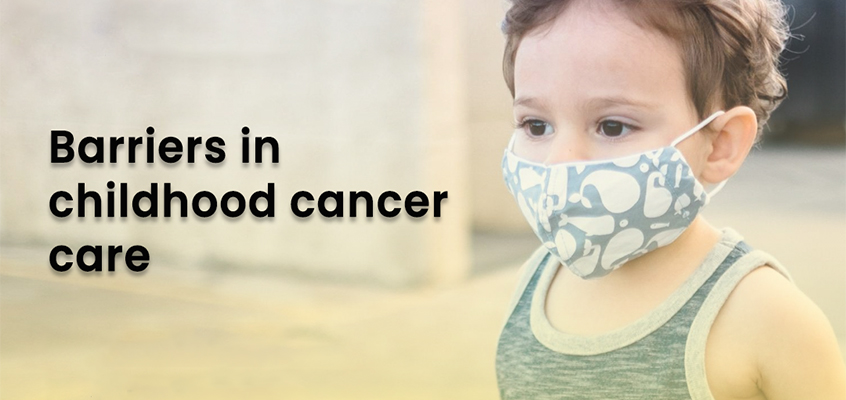Barriers in childhood cancer care

The reasons for lower survival rates in LMICs include: delay in diagnosis, an inability to obtain an accurate diagnosis, inaccessible therapy, abandonment of treatment.
A delay in the diagnosis of childhood cancers can have significant consequences for the affected child and their family. Timely diagnosis is crucial because childhood cancers often progress quickly, and early intervention can improve the chances of successful treatment. Here are some reasons for delays in the diagnosis of childhood cancers:
- Symptoms Can Be Vague: The early symptoms of childhood cancer can be non-specific and easily mistaken for other common childhood illnesses or conditions. For example, symptoms like fever, fatigue, and unexplained weight loss can be attributed to various causes, making it challenging to recognize cancer as the underlying issue.
- Lack of Awareness: Childhood cancer is relatively rare compared to cancer in adults, and many healthcare professionals may have limited experience with pediatric oncology. Lack of awareness about the signs and symptoms of childhood cancer can lead to misdiagnoses or delayed diagnoses.
- Inaccessible Healthcare: In some regions, access to healthcare facilities and specialists, including pediatric oncologists, may be limited. Families living in rural or underserved areas may face longer wait times to see specialists, leading to delays in diagnosis and treatment.
- Misdiagnosis: Children with cancer may be initially misdiagnosed with more common conditions like infections or benign tumors. This can result in a delay in identifying and treating the cancer.
- Reluctance to Investigate: In some cases, healthcare providers may hesitate to perform extensive diagnostic tests on children, particularly if the symptoms appear mild or if they believe the likelihood of cancer is low. This can lead to a delay in ordering necessary tests.
- Atypical Presentation: Some childhood cancers may present with atypical symptoms or may not display the classic signs typically associated with that cancer type. This can make diagnosis more challenging.
- Psychological Barriers: Physicians and parents may experience psychological barriers to considering cancer as a diagnosis in a child, as cancer is perceived as a rare and severe disease in children. This can lead to reluctance to consider cancer as a possibility, resulting in delays.
- Alternative treatment: Alternative medicines practices like homeopathic or ayurvedic are common in India. But, these medicines generally can’t cure any cancer. Thus, patient loses the crucial time of starting effective treatment.
It’s important to emphasize the need to maintain a high index of suspicion for childhood cancer when evaluating children with persistent or unexplained symptoms. Early diagnosis and prompt referral to pediatric oncology specialists are critical to improving outcomes and reducing the impact of childhood cancer.
